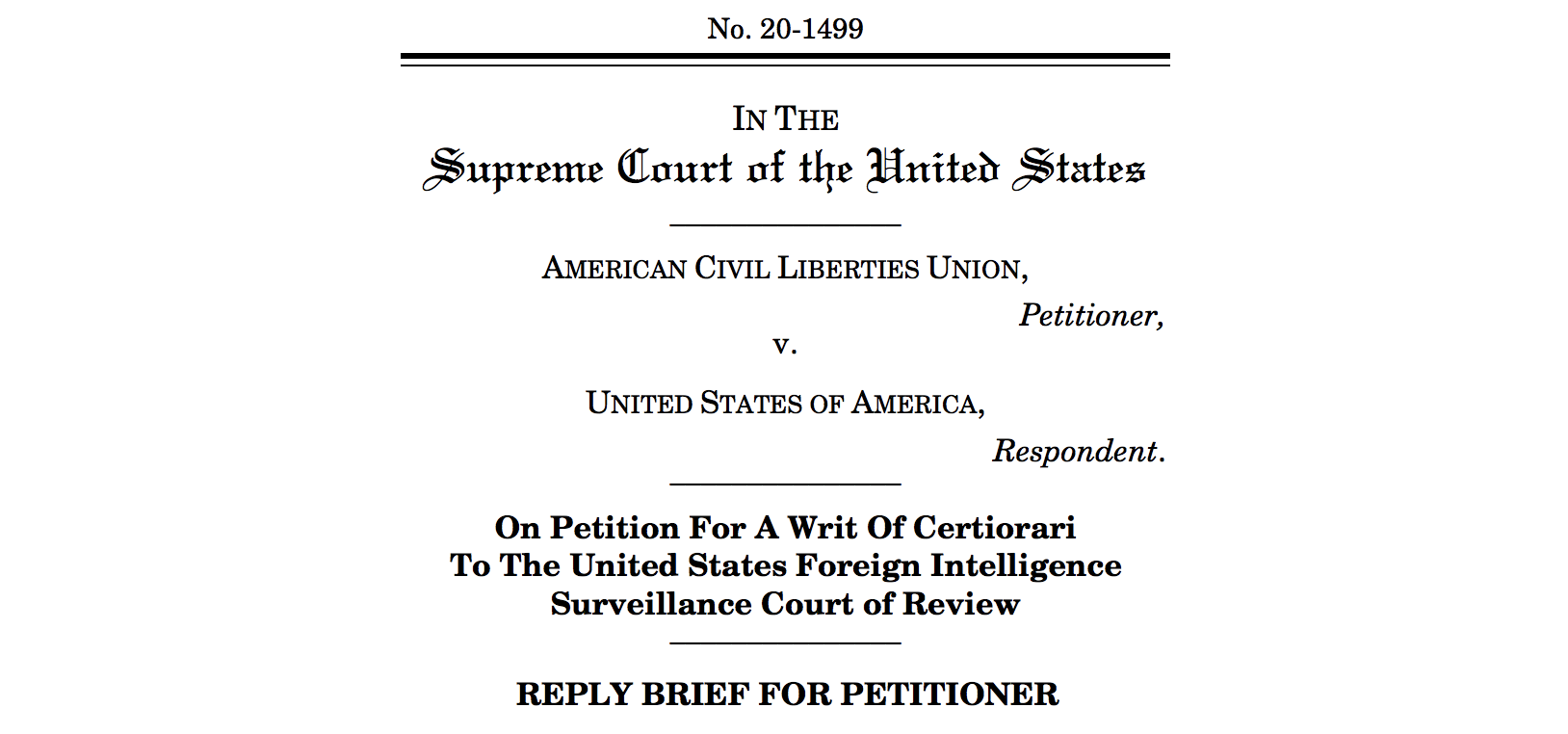|
The American Civil Liberties Union replied to a U.S. government brief last week over whether the U.S. Supreme Court has the authority to review rulings from lower, secret courts that relinquish the power to disclose secret court opinions from the judiciary to the executive branch.
At stake is whether Americans have a First Amendment right to be informed of the extent of government surveillance described in opinions issued by two lower U.S. courts. “When the founders wrote the Bill of Rights, they had in mind the secret Star Chamber of King Charles as a negative example of what not to allow,” said Gene Schaerr, general counsel of the Project for Privacy and Surveillance Accountability. “The existence of a secret surveillance court in Washington today is, to say the least, an anomaly in the American system. This court hears only from one side – the government’s side. And its opinions before 2015 have largely been kept under lock and key. At the very least, we should know the opinions of this secret court so we can assess the degree to which the government is peering into our lives.” Created in 1978, the Foreign Intelligence Surveillance Court (FISC) conducts secret hearings on foreign intelligence through the government’s collection of phone records, emails, and internet browsing data. American citizens and persons in the United States are often caught up in surveillance dragnets approved by FISC. The FISC and its superior court, the Foreign Intelligence Surveillance Court of Review (FISCR) ruled on whether the First Amendment guarantees the public a qualified right of access to FISC opinions. The courts’ decisions? They ruled that the publication of these judicial opinions is up to the executive branch alone to decide. “This case raises a significant question,” PPSA declared in an amicus brief filed in May. “How can the American people learn of, debate, and cast informed votes relating to the Executive Branch’s surveillance activities performed in their names—and, for that matter, authorized by FISC and FISCR—if the government refuses to disclose that information?” “This is an astonishing abdication of the right of U.S. courts, established under Article III, to exercise judicial power in all cases,” Schaerr said. “Surely the Supreme Court will take umbrage at the supine surrender of judicial authority by the lower courts.” The U.S. government’s brief argues that the FISC and FISCR courts acted correctly for a “lack of jurisdiction.” The petition filed by the ACLU, the Knight First Amendment Institute at Columbia University, the Media Freedom and Information Access Clinic at Yale Law School, and former Solicitor General Ted Olson, seeks the release of these opinions, with necessary redactions to protect vital government secrets. The ACLU petition is a masterpiece of legal reasoning laced with restrained indignation. It is worth reading: At bottom, the government contends that no court has jurisdiction to decide whether citizens have a First Amendment right of access to the Foreign Intelligence Surveillance Court’s opinions. “Think about that,” Schaerr said. “The government is saying the U.S. Supreme Court lacks jurisdiction to decide First Amendment claims concerning lower court rulings.” The ACLU brief states that the Supreme Court has jurisdiction to resolve the petitioners’ First Amendment claim to release the opinions. Failure to do so, they write, “would raise a serious constitutional question.” “I would actually go a little further,” Schaerr said. “Failure to release these opinions would quietly precipitate a constitutional crisis.” Comments are closed.
|
Categories
All
|


 RSS Feed
RSS Feed